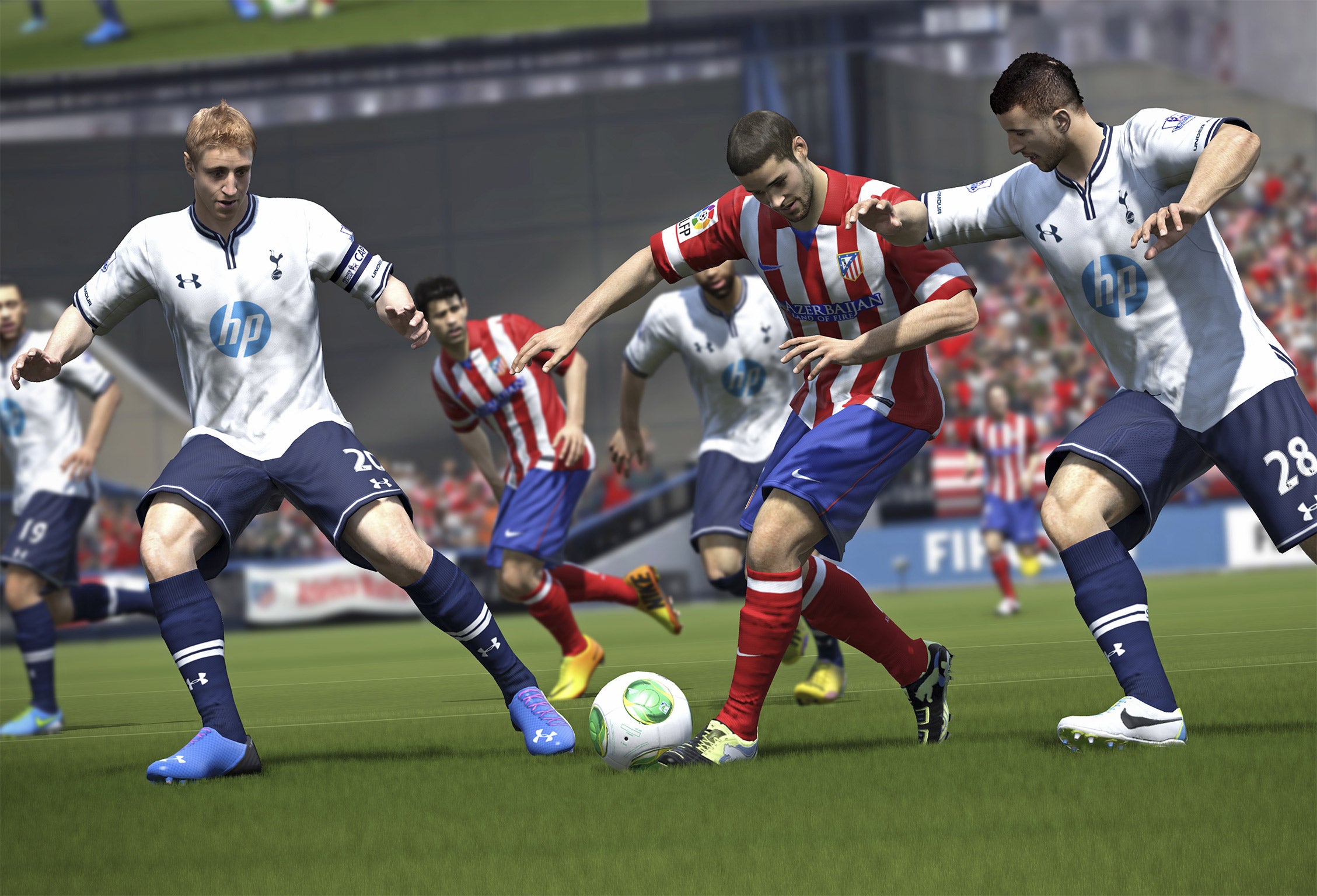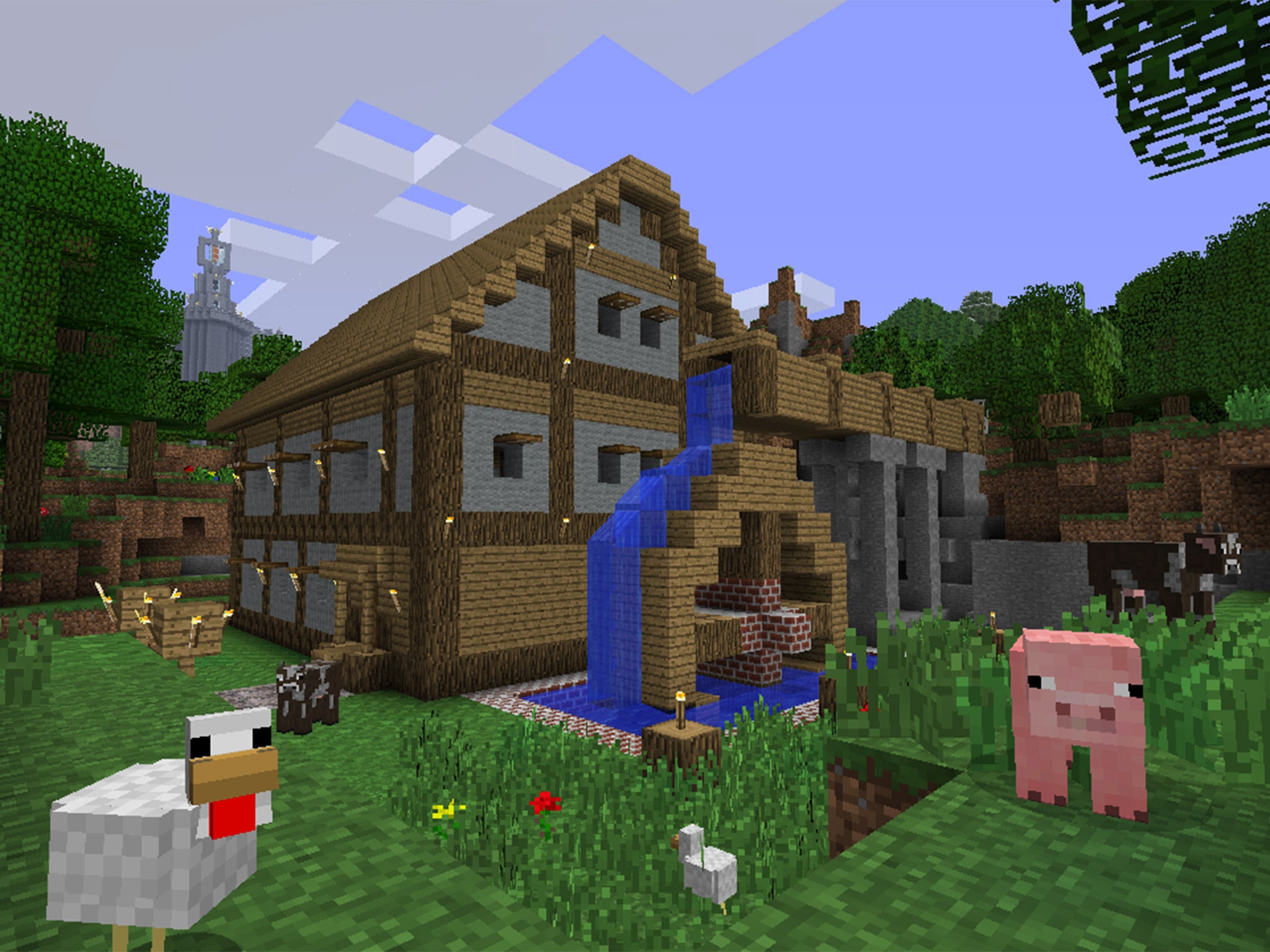Amazon is buying Twitch for £600m - but why do people want to watch others playing Xbox?
Seth Stevenson attempts to discover the appeal of the video-game-themed online streaming site

Your support helps us to tell the story
From reproductive rights to climate change to Big Tech, The Independent is on the ground when the story is developing. Whether it's investigating the financials of Elon Musk's pro-Trump PAC or producing our latest documentary, 'The A Word', which shines a light on the American women fighting for reproductive rights, we know how important it is to parse out the facts from the messaging.
At such a critical moment in US history, we need reporters on the ground. Your donation allows us to keep sending journalists to speak to both sides of the story.
The Independent is trusted by Americans across the entire political spectrum. And unlike many other quality news outlets, we choose not to lock Americans out of our reporting and analysis with paywalls. We believe quality journalism should be available to everyone, paid for by those who can afford it.
Your support makes all the difference.When the news broke this week that Amazon was buying Twitch, a video-game-themed online streaming site, for nearly £600m, the most striking thing in all the media reports – to me – was the sheer number of people who will willingly watch other people play video games.
I'd previously thought that when somebody else was holding the Xbox controller it was time to prepare oneself a snack. An ex-girlfriend described watching another person's game as "the most boring possible thing I can even conceive of". Yet Twitch is racking up 55 million unique visitors per month. Audiences for some of its real-time events can rival the viewership of mainstream sports broadcasts on TV.
Head over to Twitch.com and see for yourself. I observed crowds of up to 25,000 people watching the early round events of a European tournament featuring the game StarCraft II: Heart of the Swarm. Even some random kid in California had more than 1,000 viewers – a chunk of them deeply engaged in the chat box conversation that runs next to the video content – who'd gathered on his channel to watch him annihilate hapless foes in a first-person shooter game. The site is not limited to superstars: you can broadcast your embarrassing fumblings through GTA4, though you're not likely to get any more clicks than you did for that YouTube clip of yourself on a trampoline. But the real eyeballs go either to the most supremely talented gamers or the ones who build a conversational rapport with their live streaming audiences. These are the channels that get featured on Twitch's front page.
If you're like my ex-girlfriend and would rather watch mould grow than watch someone else shoot lasers at alien beasts, you might be wondering: what exactly is the attraction here? In an effort to find out, I spent most of yesterday evening and all of this morning on Twitch. And I think I'm at last beginning to understand.
First, a confession: I am not a gamer. I don't own a console. At 40, I'm way too old to be of the generation that grew up with massive multiplayer online gaming. Most of the etiquette, and especially the vocabulary, that I encountered on Twitch was confusing to me. Everybody speaks in acronyms that I don't understand. There is discussion of "mages" and "junglers" and such, and I can't begin to know what those words mean in this context.

Late one night, I watched a featured Twitch channel on which a group of boys (at least they sounded like boys – their voices were screechingly prepubescent) battled druids and wizards and various sultry lady-creatures with diaphanous wings. It was as though these kids were speaking a foreign language as they bantered over their headsets. "I cupcaked the bitch!" was a frequent refrain, which to my ears sounds suspiciously like a gendered insult, but frankly I was too busy trying to suss out what the verb to cupcake means to have any time to be offended. The chat boxes also offered nothing but puzzlement. They were reeling scrolls of homophobic chatter, indecipherable emoji strings and (I later learned this is ubiquitous on Twitch) complaints that the game broadcasts were loading too slow and had become "laggy".
The broadcasters (or "casters") on Twitch channels are often just one man who has a webcam set up, such that his face appears in the lower corner of the screen as his gameplay takes centre stage. These fellows frequently wear amber-tinted gaming glasses and, of course, plastic headsets curl over their ears and across their jawlines. Whenever there is a break in a game and they take a breather from axe-chopping wizards or throat-ripping terrorist Swat teams, they will squint at the chat box and attempt to address some of the many queries posed there. These questions mostly boil down to "what kind of tech gear do you use?" (everyone has souped-up PCs) and "what's your favourite game to play?" (usually the one that they're playing right now) and "are you gay LOL?" (to their credit, most casters refrain from engaging with this stuff).
As I settled in, I began to get a feel for the Twitch community. A lot of Twitchers seem to relish watching the casters fail. When one caster attempted a "speed run" on a Legend of Zelda game (meaning he was trying to complete the game in record time), the chat box erupted with delight as he died before passing a stage that involved a lot of pixelated chickens. "REKT", wrote the chatters, over and over, which I'm pretty certain is slang for "wrecked". The caster threw his hands up in frustration, said "I'm done" and cut the stream abruptly before he could suffer further humiliation. The chat box still ran and many stuck around to write "REKT" a few more times and post "I'm laughing so hard that I'm crying" emojis and generally gloat over his crushing defeat.
I found that there was a calming quality to watching some of the channels. As I drank my coffee the following morning, I tuned in to watch an Eastern European man tackle a game in which he played some sort of military sniper who stealthily stalks opponents in the wilderness. He wandered over a barren hillside, at one point muttering, "who left this weehickle here?" when he encountered an abandoned Humvee.
About 600 people were watching his stream and they would venture guesses in the chat box as to where his enemies had concealed themselves. Sometimes he consulted his map, which came up on screen and he indicated to us where he thought these opponents might be. For long stretches, not a whole lot happened and we watched as his character huddled motionless behind a rock, clad in a Ghillie suit, peering through his riflescope to locate his next quarry. When he at last delivered a fatal head shot, the release was palpable.
I admit that it was hard for me to understand sometimes why anyone would spend time watching this stuff. Some channels seemed to consist solely of people scrolling through video-game menu screens, clicking weapons options and looking for opponents, as speed metal raged on the soundtrack. But when I watched a tournament event, I suddenly saw why Twitch has a future.

It was the play-offs of the StarCraft II World Championship Series in Europe and a player nicknamed Welmu was battling a player nicknamed LiveZerg. About 25,000 people had tuned into their head-to-head fight. There was a broadcast team of two guys behind a logo-plastered desk who would commentate on every nuance of the action.
I, of course, had no idea who the two players were, but the crowd in the chat box was very familiar with their playing histories, their favoured strategies, their strengths and weaknesses, and so forth. One of the commentators marvelled over how rare it is for Welmu to lose to "non-Koreans". Turns out Welmu is a 20-year-old Finn named Vesa Hovinen, while LiveZerg is 22-year-old Russian named Andrey Guldyashov.
So: a pair of well-known combatants, a two-man broadcast team in the booth, an organised tournament with thousands of rapt spectators – I think you see where I'm going here. This is simply a televised sport, much like any other. In fact, fans refer to video game contests as "eSports". For instance, see this tweet in which a gaming fan advises other gaming fans: "Stop giving a shit what mainstream media thinks of eSports. If you enjoy something then fuck what other people think, it's your life."
Point taken. Perhaps I'm not fully captivated by watching people play StarCraft II. But presumably those people in turn can't understand why I would waste hours on a Sunday watching people play golf on TV.
What about those low-key channels where it's just one dude gaming and shooting the breeze with his thousands of viewers? Well, those viewers are finding a community of like-minded souls, they're engaging over a shared interest and they're getting tips from superior gamers on how to win at the games. How is this different than watching a cooking show that mesmerises you while also teaching you how to make a soufflé? Or, for heaven's sake, watching a show about redecorating nondescript houses in suburbia?
A great deal of the bafflement over Amazon's purchase of Twitch comes from people who, like me, are too old to understand gaming on a deep-down, emotional level. It's a gaping generational chasm: I'm on record with my conviction that, sometime after I was born, there occurred an evolutionary leap in thumbs; that people under 30 simply have far more powerful and responsive thumbs than I do; and that we will elect a thumb president by the end of the 22nd century.
I submit that for the younger, thumb-blessed cohort that populates Twitch, there's nothing weird at all about passing an evening watching, learning and chatting about the pastime they adore.
Copyright Slate.com
Join our commenting forum
Join thought-provoking conversations, follow other Independent readers and see their replies
Comments